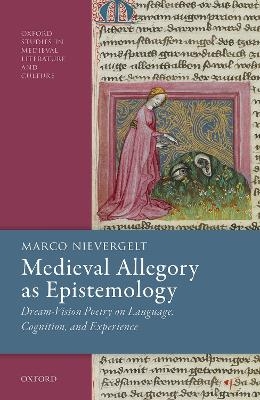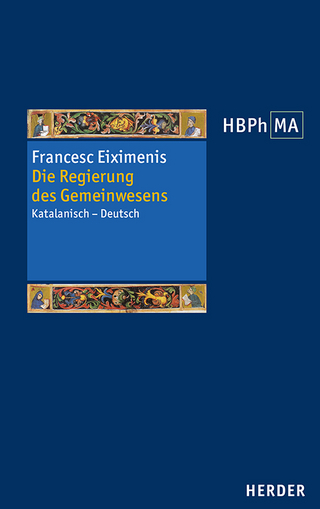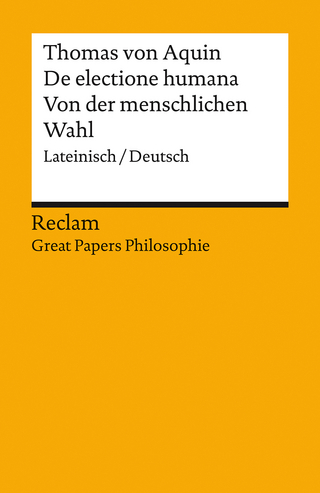
Medieval Allegory as Epistemology
Oxford University Press (Verlag)
978-0-19-284921-2 (ISBN)
In Medieval Allegory as Epistemology, Marco Nievergelt argues that late medieval dream-poetry was able to use the tools of allegorical fiction to explore a set of complex philosophical questions regarding the nature of human knowledge. The focus is on three of the most widely read and influential poems of the later Middle Ages: Jean de Meun's Roman de la Rose; the Pélerinages trilogy of Guillaume de Deguileville; and William Langland's vision of Piers Plowman in its various versions. All three poets grapple with a collection of shared, closely related epistemological problems that emerged in Western Europe during the thirteenth century, in the wake of the reception of the complete body of Aristotle's works on logic and the natural sciences. This study therefore not only examines the intertextual and literary-historical relations linking the work of the three poets, but takes their shared interest in cognition and epistemology as a starting point to assess their wider cultural and intellectual significance in the context of broader developments in late medieval philosophy of mind, knowledge, and language. Vernacular literature more broadly played an extremely important role in lending an enlarged cultural resonance to philosophical ideas developed by scholastic thinkers, but it is also shown that allegorical narrative could prompt philosophical speculation on its own terms, deliberately interrogating the dominance and authority of scholastic discourses and institutions by using first-person fictional narrative as a tool for intellectual speculation.
Marco Nievergelt studied at the Universities of Lausanne, Glasgow, and Oxford. His research interests lie in English and comparative literature, cultural history, and intellectual history in the late medieval period (c. 1200-1600). His research specializations include allegorical poetry, the relations between medieval literature and philosophy, chivalric literature and romance, Anglo-French cultural and literary relations, and medieval translation. He is currently a Marie Curie Post-Doctoral Fellow at the EPHE/PSL in Paris, working on a research project on the Science, Philosophy, and Poetics of Experience in Late Medieval England (SPPELME). He has previously taught at the Universities of Warwick, Geneva, and Lausanne, and held fellowships from the Swiss Science Foundation, the Institute for Advanced Studies in Paris, and Corpus Christi College, Oxford.
Introduction
I. Jean de Meun
1: In the Beginning was the Rose
II. Deguileville
Introduction to Part II
2: Language
3: Cognition: Theory and Practice
4: Experience
III. Langland
Introduction to Part III
5: The Desire for Knowledge and the Experience of Conversion
6: The Experience of Failure and the Architecture of Vision
7: The Ends of Experience: Incarnation and Apocalypse
| Erscheinungsdatum | 17.05.2023 |
|---|---|
| Reihe/Serie | Oxford Studies in Medieval Literature and Culture |
| Verlagsort | Oxford |
| Sprache | englisch |
| Maße | 160 x 241 mm |
| Gewicht | 980 g |
| Themenwelt | Geisteswissenschaften ► Philosophie ► Philosophie des Mittelalters |
| Geisteswissenschaften ► Sprach- / Literaturwissenschaft ► Anglistik / Amerikanistik | |
| Geisteswissenschaften ► Sprach- / Literaturwissenschaft ► Literaturwissenschaft | |
| ISBN-10 | 0-19-284921-2 / 0192849212 |
| ISBN-13 | 978-0-19-284921-2 / 9780192849212 |
| Zustand | Neuware |
| Informationen gemäß Produktsicherheitsverordnung (GPSR) | |
| Haben Sie eine Frage zum Produkt? |
aus dem Bereich


